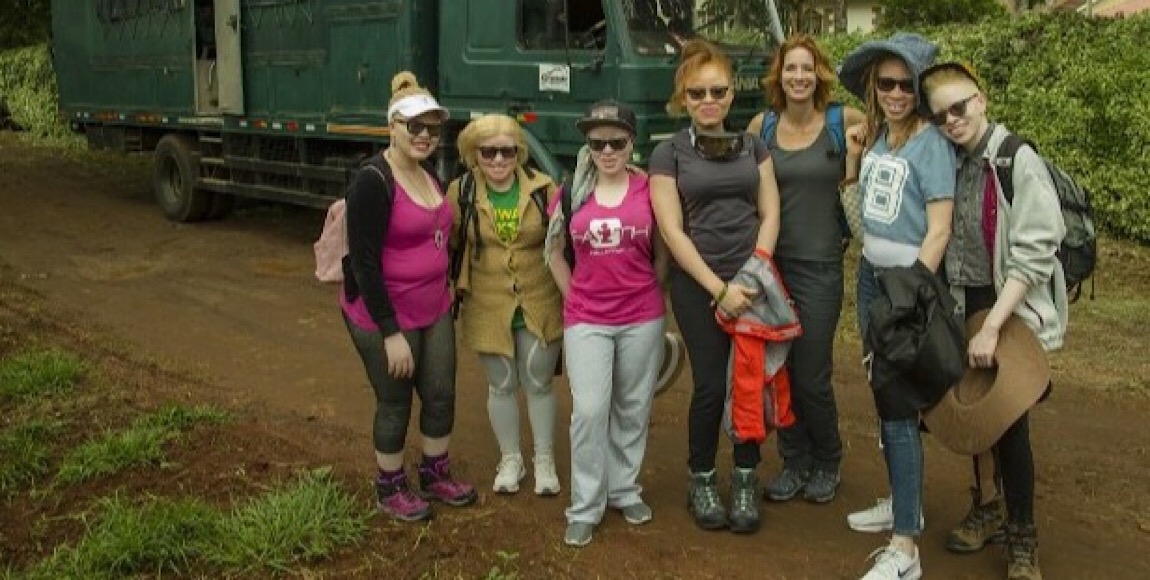Stigma, prejudice, and violations often faced by persons with albinism inspired six visually impaired women from various countries to raise global awareness by climbing Mount Kilimanjaro in Tanzania.
The six climbers from South Africa, Zimbabwe, Nigeria, Kenya, Senegal and Tanzania embarked on the historic ascent on October 1, 2018. The journey was part of their inspiring campaign to champion awareness on the condition and rally for actions to end continuous discrimination and human rights violations against persons with albinism.
A Zimbabwean climber Nodumo Ncomanzi (26) who summited Uhuru Peak expressed her excitement of having been part of the remarkable team.
“I am proud to be a woman with albinism who stood at Uhuru Peak,” said Nodumo.
“My teammates were my source of strength. I would not have made it to the summit if we had not climbed together. This is only the beginning of us amplifying our power and that of other persons with albinism around the world,” she added.
Nzomanci grew up in Zimbabwe where she says she went through vile experiences growing up as a child with albinism, but the active support system from family underscored her desire to achieve her interests as she grew up.
“I was privileged enough to grow up with a family that protected and supported me,” she says.
“However I did experience daily forms of discrimination such as being pointed out and laughed at by adults while walking to and from school as a minor. I was also at the mercy of cruel teachers who did not want me to sit at the front of the class. My low vision was often disregarded in school.”
In Sub Saharan Africa, persons with albinism have endured different forms of persecutions including death and mutilation, with Tanzania reportedly one of the countries with the highest record of killings of those with the condition.
The six remarkable women – Jane Waithera (Kenya), Mariam Staford (Tanzania), Maah Keita (Senegal), Dr. Onyinye Edi (Nigeria), Nodumo Ncomanzi (Zimbabwe) and Regina Mary (South Africa) all completed their summits energised. They said physical and mental strain while scaling up the mountain taught them empowering lessons.
“Climbing the mountain made me identify the physical representation of how painful the lives of persons with albinism are,” said Regina Mary.
“The struggle to reach the next base-camp reminded me of how hard it can be to keep trying to pursue my dreams as a person with albinism.”
Jane Waithera who advocates for, and mentors, persons with albinism in East Africa said: “For me, this is one of the greatest moments of my life and I am proud to be part of making history and promoting a better world for persons with albinism. Every step that I took towards the top was a step to zero stigma and discrimination towards persons with albinism.”
Expedition leader and co-founder of ‘Climb for Albinism’ Elia Saikaly said “The climb was a significant struggle for the entire team, symbolic of the challenges persons with albinism face in their everyday lives. Mount Kilimanjaro threw just about everything at us and in the end, the Climb for Albinism flag was raised on the roof of Africa. I’m incredibly proud of each team member for undertaking such a tremendous challenge and for standing together for such an important cause.”









